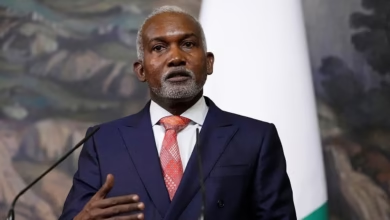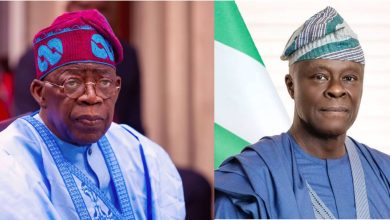Business
Fitch Affirms Nigeria’s Credit Rating at ‘B’, Citing Policy Reforms and Oil Gains Amid Inflation Pressures
Fitch Ratings has reaffirmed Nigeria’s Long-Term Foreign-Currency Issuer Default Rating (IDR) at ‘B’ with a Stable Outlook, highlighting the country’s policy improvements and growing economic base while warning of persistent structural challenges.
The agency said Nigeria’s rating remains supported by its large and diversified economy, relatively deep local debt market, and abundant oil and gas reserves. However, weak governance, high inflation, security risks, and limited non-oil revenue continue to weigh on the credit profile.
Exchange Rate and Monetary Policy
Fitch noted that recent foreign exchange (FX) reforms have improved liquidity and stabilized the naira. The Central Bank of Nigeria (CBN) has shown commitment to reforming monetary policy, though concerns remain over data transparency and policy predictability.
The CBN began easing monetary policy in September, cutting the policy rate by 50 basis points to 27%—its first reduction since 2020. Fitch expects gradual rate cuts as the bank balances inflation control with exchange rate stability.
Inflation and Growth Outlook
Nigeria’s inflation remains high but is easing, Fitch said. Inflation fell from an average of 33% in 2024 to about 20% in August 2025 and is projected to drop to 17% by 2027, still well above the median for countries with similar ratings.
Real GDP growth is forecast to rise slightly to 4.2% in 2025, supported by relative FX stability and recovering oil output. Oil production is projected to average 1.5 million barrels per day, up from 1.34 mbpd in 2024, though still below pre-pandemic levels.
External Reserves and Fiscal Position
Nigeria’s external reserves rose to $42 billion at the end of September and are expected to ease slightly to $40 billion by end-2026. This level provides about 5.8 months of import cover, above the median for comparable ‘B’-rated economies.
Despite stronger reserves, Fitch expects Nigeria’s budget deficit to widen to around 3.1% of GDP between 2025 and 2026 due to rising government spending on wages, social programs, and debt servicing ahead of the 2027 elections.
Revenue performance is projected to improve modestly, reaching 12.4% of GDP by 2027, helped by new tax laws taking effect in 2026. Still, this remains below the government’s ambitious target of 16.2% and the ‘B’ category median of 17.8%.
Debt and Fiscal Sustainability
Nigeria’s public debt-to-GDP ratio is expected to fall slightly to 37% by 2027, supported by nominal GDP growth and a relatively long debt maturity profile averaging 10.9 years. Fitch highlighted that over half of this debt is denominated in local currency, reducing external vulnerability.
However, the country’s interest-to-revenue ratio remains high, expected to peak at 43% in 2025 before easing to 34% by 2027—well above the ‘B’ median of 15%.
Banking Sector Outlook
Fitch also anticipates rising non-performing loans as Nigerian banks exit regulatory forbearance that had allowed flexibility in classifying risky loans, especially in the oil and gas sector. The agency said most banks are preparing to meet new capital requirements, which should help mitigate risks.
Governance and ESG Factors
Fitch maintained Nigeria’s Environmental, Social and Governance (ESG) relevance score of 5 for political stability, institutional quality, and control of corruption. The agency cited continued institutional weaknesses and corruption concerns as major credit constraints.
Debt Instruments and Country Ceiling
Fitch also affirmed Nigeria’s senior unsecured long-term debt at ‘B’ with a Recovery Rating of RR4, indicating average recovery prospects in a default scenario. The country ceiling was maintained at ‘B’, in line with the sovereign rating, reflecting no additional restrictions on capital movement.





